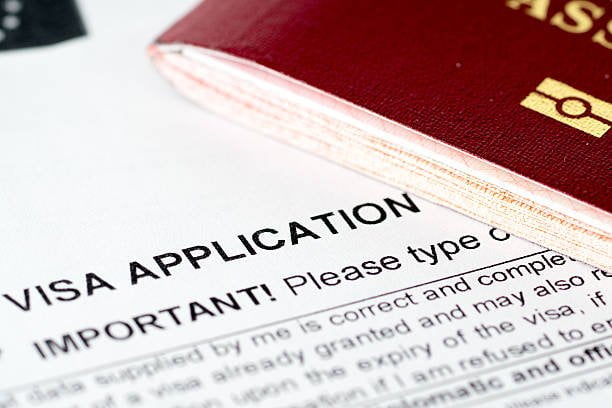Have you dreamed of living and working in Europe? With diverse cultures, beautiful historic cities, and abundant job opportunities, Europe is a top destination for expats looking to expand their horizons. But before you pack your bags, it’s important to understand the visa and permit requirements for working legally in the EU.
Navigating the application process and paperwork takes time and preparation. In this article, we’ll break down the steps and key tips for getting an EU visa or work permit. Follow along for the knowledge you’ll need to make your European career dreams a reality.
Choosing Where to Live and Work
With 27 countries in the European Union, you have lots of options for where to establish your expat life. Consider factors like:
- Job opportunities in your field
- Cost of living
- Languages spoken
- Lifestyle and culture
- Ease of getting a visa/permit
The country you choose will determine the specific requirements to legally live and work there. However, all EU countries have streamlined procedures for non-EU residents compared to other parts of the world.
Long-Term EU Visa Options
If you plan to work in Europe for more than 90 days, you’ll need to apply for a National or D-Type long-stay visa. These allow non-EU citizens to live in an EU country for 6-12 months. Here are some of the common long-term visas for expats:
Work Visa:
- Allows working for a specific employer
- Sponsorship from company required
- Usually 6-12 month validity
Freelance Visa
- For freelancers and self-employed workers
- Show proof of work/clients in country
- Duration depends on work contract
Student Visa
- For studying at university or language school
- Enroll in accredited program
- Valid for length of study program
Family Reunion Visa
- For spouses or children of EU residents
- Proof of family relationship required
- Valid for up to 12 months
Job Seeker Visa
- Lets you look for jobs in country
- Proof of financial support required
- Valid 6-9 months
Each country has its own application process, so research the specific policies for where you wish to go. Many require scheduling an appointment at the local embassy or consulate.

EU Work Permits and Residence Cards
Once you have a long-term visa, you are allowed to live in the country but not legally work yet. To become employed, you need apply for an EU work permit and residence card. These allow non-EU citizens to work and remain in the country long-term.
Here are the main permit options:
Standard Work Permit
- For long-term employment with a company
- Employer sponsorship required
- Renewable annually
EU Blue Card
-
For high-skilled workers like tech, engineering, etc.
Minimum salary required
Provides eligibility for permanent residency
Self-Employed Permit
- For entrepreneurs, freelancers, investors
- Show proof of financial resources
- 1-5 year validity depending on country
Residence Card
- Must be applied for after receiving work permit
- Grants continued right to live and work
- Valid for 2-5 years before renewal
Understanding the process and timeline for getting these approved is crucial when planning your relocation. Be sure to apply well in advance of your intended start date in Europe.
Application Documentation Needed
Applications for EU work authorization require providing extensive documentation. Here are some of the key items needed:
- Valid passport
- Proof of financial resources
- Employment contract or job offer
- Educational documents
- Clean criminal record
- Health insurance
- Proof of lodging/address
- Passport photos
- Previous residence permits
Requirements vary between permit types and EU countries, so carefully review what is needed for your specific case. Having complete, translated and certified documents will help avoid delays or rejection.

Tips for Success
Applying for the right to live and work abroad involves many steps, but being prepared helps ensure a smooth process. Here are top tips for getting your EU visa or work permit successfully:
- Hire an immigration lawyer – They can advise on the process and make sure your application is error-free.
- Have all documents translated – Most countries require official translations in the local language.
- Get certified copies – Documents usually need to be notarized as true copies.
- Meet financial requirements – Have proof you meet minimum income thresholds where required.
- Check visa wait times – Some EU embassies have long backlogs, so apply early.
- Renew before expiration – Avoid gaps in your status which can jeopardize eligibility.
- Carry all documents – Keep visas, permits and ID on you when in the country.
Following the EU’s rules and meeting all requirements is essential for being granted permission to work abroad long-term. But by understanding the steps for your desired country and getting the right advice, your dream European career can become a reality.
Resources for Finding Job Opportunities in Europe
There are several resources you can use to find job opportunities in Europe. Here are some suggestions:
1. LinkedIn: LinkedIn is a professional networking site where you can search for job openings, connect with recruiters and hiring managers, and join groups related to your field of interest. You can also set up job alerts to receive notifications when new job postings that match your criteria are posted.
2. Indeed: Indeed is a job search engine that lists job openings from various sources, including company career pages, job boards, and recruitment agencies. You can search for jobs by location, industry, job title, and company.
3. Eurojobs: Eurojobs is a job site that specializes in listing job opportunities across Europe. You can search for jobs by country, language, and job category.
4. Glassdoor: Glassdoor is a job search site that not only lists job openings but also provides company reviews and salary information.
5. EURES: EURES is a job portal that is managed by the European Commission. It provides job listings, information about living and working in different European countries, and advice and support for job seekers.
6. Monster: Monster is a global job search site that lists job openings from various sources.
7. Joblift: Joblift is a job search engine that aggregates job postings from various sources, including company websites, job boards, and recruitment agencies. You can search for jobs by location, industry, and job title.
These resources can help you find job opportunities across Europe, but it’s important to note that the job market can vary by country, industry, and job type.
Conclusion
Moving abroad for a job in Europe can be life-changing, but obtaining the right legal paperwork is required. Be strategic when choosing where to go and research the specific visa and permit processes. Allow plenty of time for applications and have all necessary documents ready. Stay on top of renewal deadlines and always follow the latest policies.
Most importantly, approach your European work authorization with care and patience. With the proper preparations, you’ll be embarking on an amazing adventure living, working and thriving in the EU. Check out more tips for expat life on the ScholarsPoll blog – and get ready for the journey of a lifetime!

